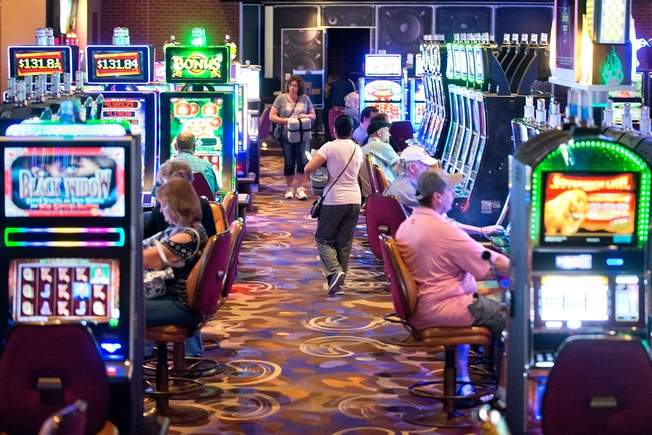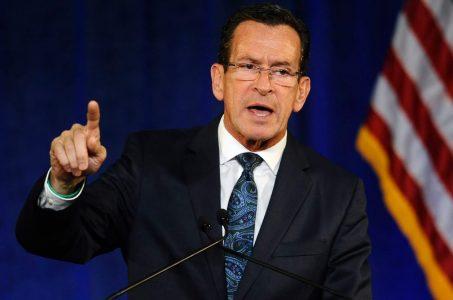Self-Excluded Problem Gamblers in Iowa Given Chance to Lift Their Own Lifetime Casino Bans
Posted on: October 25, 2017, 05:00h.
Last updated on: October 25, 2017, 05:36h.
A change in the law is giving some self-identified problem gamblers a second chance. About 550 former gamblers in Iowa are taking advantage of a new law that allows people who put themselves on a list to be banned from casinos for life to reduce their self-imposed timeout to five years.

The new law went into effect July 1, and with many already having avoided in-state casinos for at least five years, they would be free to re-enter the casino without raising any eyebrows.
Iowa Racing and Gaming Administrator Brian Ohorilko told Radio Iowa that the alteration to the existing law now gives the option of a 5-year self-exclusion along with a lifetime ban. And those who had previously signed the lifetime ban could request to be taken off the list.
“There’s approximately 4,000 people who are eligible to be removed, essentially those are all people who had been on for five years or more,” he said.
While it only takes the governmental agency less than a week to get the person registered, the 20 of 22 casinos that also have people in their system forbidding them to enter might take longer Ohorilko said.
“Sometimes it takes anywhere from seven to 30 days for those properties to get their own databases in sync with the removal,” he said.
Lottery Uses Different Tactic
While putting people with problem gambling on a list prohibiting them from patronizing casinos, preventing them from purchasing lottery tickets is more challenging.
“Obviously we can’t ban folks from going to a convenience store or from a grocery store because they have other business that they need to be doing in those locations,” Iowa Lottery spokesperson Mary Neubauer said in an interview with Radio Iowa. “So the way we came at the motivation to play was to have folks who sign our self-exclusion agreement to ban themselves from lottery offices across the state.”
They might be able to purchase tickets but if they won any amount of money that required them turning the ticket into to be redeemed would not be possible.
“What we’re all trying to do is give someone who is trying to deal with the issue of compulsive gambling more tools that they can use to try to make a healthy recovery from the difficulty it has caused in their life,” she said.
Self-Exclusion Limits
One infamous gambler on a similar restriction list was Resorts World Manila gunman Jessie Javier Carlos. He was put on an exclusion list at the request of his wife because of his gambling addiction, but that didn’t stop the 42-year-old from entering the capital city casino with an automatic rifle. He shot wildly in the air, forcing panicked patrons and workers to seek refuge on the second floor. He set fire to several gaming tables and people were trapped. Smoke inhalation killed 37.
Security has since been improved at Philippine casinos so that a comparable tragedy can hopefully be prevented. Part of the measures includes better training of security to spot people that are on lists prohibiting them from entering gambling venues.
Related News Articles
Connecticut Governor Balks at MGM Proposal for $675M Bridgeport Casino: ‘Impossible’
Tribe Plans to Challenge Feds on Lansing Casino
PAGCOR Auctioning Two Parcels of Land at Site of Solaire Casino
Most Popular
Mirage Las Vegas Demolition to Start Next Week, Atrium a Goner
Where All the Mirage Relics Will Go
Most Commented
-
Bally’s Facing Five Months of Daily Demolition for Chicago Casino
— June 18, 2024 — 12 Comments
















Last Comments ( 8 )
Do not. Repeat do not go to Riverside. They do not pay. These few winners are ...let's just say acquaintances with some of the people. That place is not good. Look at the reviews......I banning myself now from Riverside. It's a joke
i am requesting to be taken of the self requested ban from all casinos! it has been at least 15 years and am entitled to be re-instated as a legal player in all casinos! send me the required papers to fill out!
i banned myself in the casino meskuaki iowa 6 year ago and i would like to lifted the ban do i have to apply the form or you can mail to me my address is ... marion iowa 52302
I banned myself from Riverside Casino over 5 yrs, ago, how do I reapply to to remove ban?
Hello my name is Virginia I am appealing a banned from Prairie Meadows Casino for life for non-prescription of doing anything saying that I've asked you for money which is a total lie I have been fighting this because it's my cuz I have not done anything or ignore certain kind ask anyone if I didn't have any money to gamble I would be or I would not come out there but this is a total lie I need to know how to deal with this situation without receptions of someone saying that I did something please
I am a compulsive gambler and this law was not passed in the best interest of individuals like myself. Personally I had a hard enough time banning myself the first time and apparently 5+ years of being banned didn't get rid of the demon of gambling compusively. I went thru the unbanning process and then went thru the same hell I went thru the first go around.
Hi How did you get it reversed? I thought the new law only applied to complete statewide bans, as I only have a self imposed ban from PM. My ban was 6 years ago, so would I be eligible to get it reversed?
I think you will find that there are and were many gamblers who only signed self exclusions to one or 2 casinos versus a state wide band, Many of these gamblers have also reversed the banned but with a price. I put myself on a self exclusion 12 yrs ago at Prairie Meadows and had mine reversed but there computer system still shows it to all the casino employees and I get a very odd look from them and don't feel very welcome now. So, I will most likely go back to the casinos I have been going to for the past 12 years. Even one on the members services employees said very loudly that I could not access the online rewards services because of my previous trespassing flag in there system. That is private information that the staff should not be broadcasting to everyone. I felt embarrassed and made to feel like I did not belong there. Basically discriminated against because of the previous exclusion I signed. Maybe you should do a story on that,